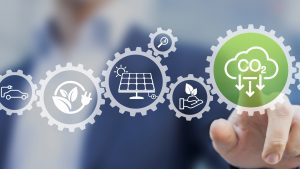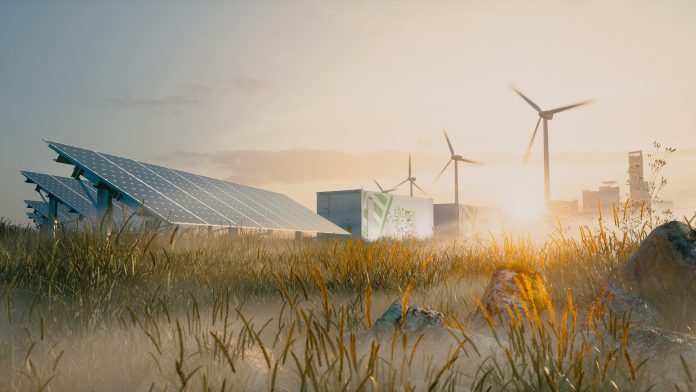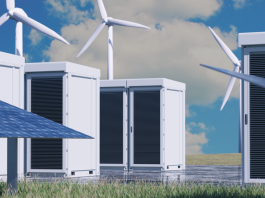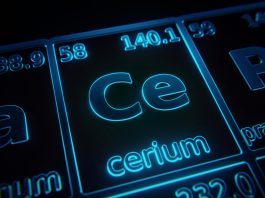Patrick Clerens, Secretary General of the European Association for Storage of Energy, discusses the organisation’s recent efforts to accelerate the transition to a decarbonised energy system, in the wake of recent societal challenges.
Based in Belgium, The European Association for Storage of Energy (EASE) is the leading member-supported association representing organisations active across the entire energy storage value chain. Established in 2011, EASE supports the deployment of energy storage to assist the cost-effective transition to a resilient, climate-neutral, and secure energy system. EASE’s vision is to have a renewable-based carbon-neutral Europe by 2050, enabled through energy storage.
In Europe, the energy storage market has faced a major shakeup in recent years as society transitions to a cleaner future, as well as facing several major public challenges. As the European Union (EU) moves towards cleaner energy and efforts to accelerate the development and deployment of renewable energy technology increase, the need for reliable and efficient energy storage has been continually heightened. Alongside the effects of the clean energy transition, the energy sector has faced major disruption throughout the COVID-19 pandemic and, recently, due to the impact of Russia’s invasion on Ukraine. In May 2022, the European Commission (EC) released the REPowerEU plan in response to the major disruption of the global energy markets due to the conflict. The plan outlines measures to gradually phase out Europe’s dependency on Russian energy imports as soon as possible by fast-forwarding the clean transition and joining forces to achieve a more resilient energy system. The plan puts forward a set of actions to save energy; diversify supplies; quickly substitute fossil fuels by accelerating Europe’s clean energy transition; and combine investments and reforms. The introduction of this plan has placed significant pressure on the energy storage sector.
In response to the recent societal challenges and the consequential increase in demand for energy storage technologies, EASE’s work this year has centred around supporting efforts to accelerate the transition to a zero-carbon energy sector. This work, alongside that of others in the sector, was recently highlighted by its event, the Energy Storage Global Conference, which took place in Brussels in October. To discover more about the conference and what the year has had in store for the EASE and the energy storage sector as a whole, The Innovation Platform, spoke to Secretary General Patrick Clerens.
What has 2022 looked like for EASE? What are your key priorities at present?
2022 has been intense. The COVID-19 pandemic put the energy sector under stress, and the Russian invasion of Ukraine has further aggravated the situation.
We are focusing on supporting the European Union in elaborating sound emergency measures to tackle these challenges, as well as setting up the foundation for an accelerated transition to a decarbonised energy system through, for example, the European Green Deal and REPowerEU.

Do you think that energy storage needs more recognition from policymakers and governments as a key enabler for the global energy transition?
We think the Russian invasion of Ukraine has really opened the eyes of many policymakers. There is a better understanding that Europe is excessively reliant on fossil fuel imports. So yes, the role of energy storage is better recognised by policymakers than one year ago. However, this awareness has not always been converted into action. We see some progress at the EU level, but at the Member State level the situation is very different from country to country.
What are the major barriers facing deployment? How are you working to overcome these?
In general, we feel that there are two strategic issues.
Firstly, the energy storage business case and economics are not as strong as they should be. For some technologies and services, the revenue streams are extremely solid – but it is not always the case. Here, EASE is trying to work with policymakers to improve the market design and set up sound funding mechanisms and financial support. It is key to ensure all services energy storage provides are remunerated, and that innovative energy storage solutions can reach the market and be profitable.
Secondly, as discussed in the previous question, the energy storage role in the energy transition is still not fully recognised – both by policymakers but also by industry, investors, and societal actors. At EASE, we believe the European Union needs an energy storage strategy with targets to send a strong signal to all the stakeholders and chart the path forward. We have launched a communication campaign on this topic in 2022; and we have an awareness campaign in the pipeline – this time in co-operation with leading renewable entities.
The Energy Storage Global Conference took place in October. What were the key themes explored there and the major takeaways from the event?
The three days of the conference focused on policy, market, and technology. From a policy perspective, 2023 will be a key year for storage, with a new Electricity Market Design proposal that promises to dramatically change the rules of the game in the EU. Marketwise, the outlook is extremely positive, with a dramatic increase in energy storage deployment in this decade and new markets opening. Regarding technologies, we will see novel, innovative solutions gain ground – especially those focusing on long/season duration.
Patrick Clerens
Secretary General
European Association for Storage of Energy
https://ease-storage.eu/
https://www.linkedin.com/company/the-european-association-for-storage-of-energy/
https://twitter.com/EASE_ES
Please note, this article will also appear in the twelfth edition of our quarterly publication.









